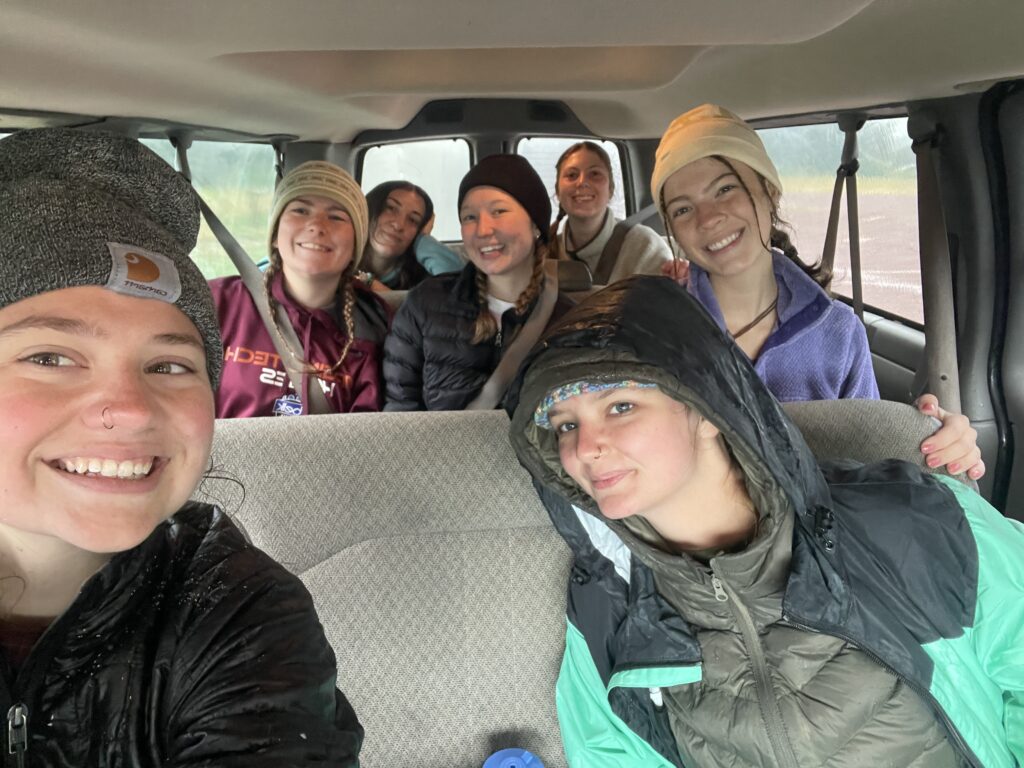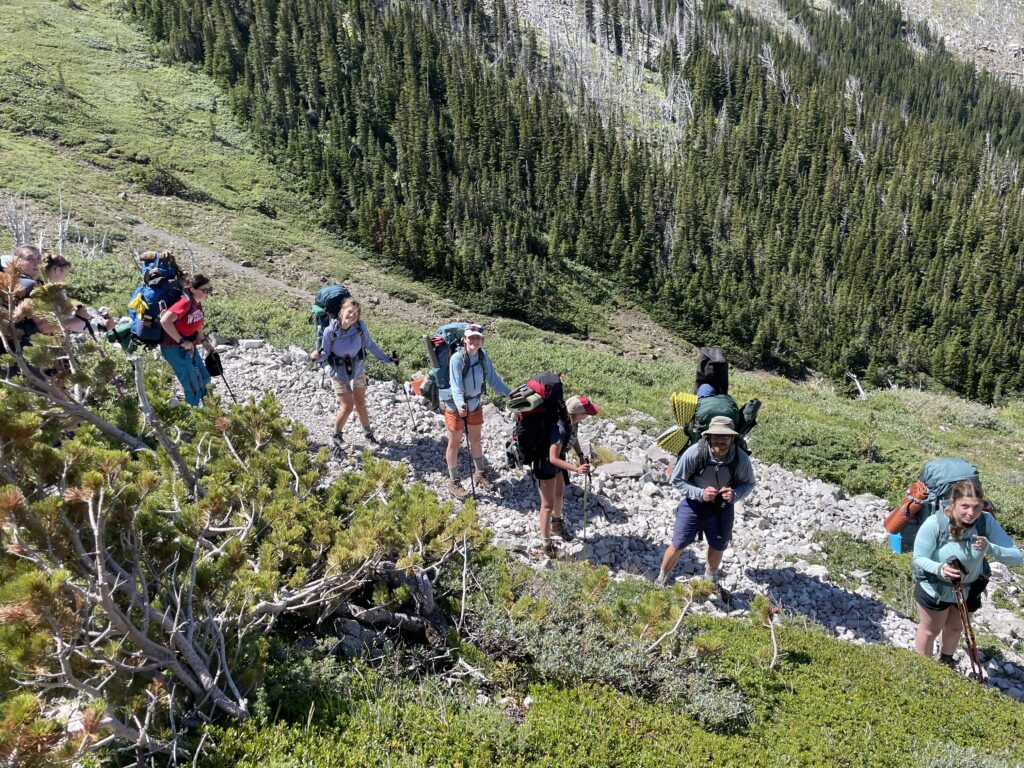- You don’t always have to carry all of your burdens. You also don’t have to carry all of the weight. There were times when we backpacked for multiple days, and this involved carrying everything we needed on our back. What I did not know was that some days, we would camp in the front country. This meant that we had a trailer to store our things. WRFI also taught me that it’s okay to not carry it all. Some days, you can carry more than others and some days, you need a friend to take some weight off your back. And that’s totally okay, and also very normal. We can’t always do it all without a little help.
- Meals don’t have to be extravagant to be good. A simple, warm meal goes a long way at the end of the day. At WRFI, we all ate dinner together at the end of the day and answered a “dinner question.” It was a ritual. Dinner is a ritual, and we need to treat it as such. Cooking can be so simple, but such an important form of self-care.
- Look up once in a while. While backpacking, it’s easy to constantly look down at the ground. The sun is in your eyes, your pack feels like a million pounds, and there are sticks and rocks all over the ground. However, when you stop and look up, there’s a beautiful mountain in front of you. Our daily lives are like that too; we’re so scared of falling, we hunker down. But taking a breath and looking up once in a while provides brief moments of peace. It’s okay to stop and take it all in.
- We take a LOT of things for granted. When backpacking and living in the backcountry, many daily routines were different. We cooked and cleaned the dishes differently and packed out our trash or leftovers. Backpacking teaches you to be grateful for nature, but it also teaches you to not take small things you’re used to for granted – such as laundry or a dishwasher.
- Life is a rollercoaster – so is backpacking. One day, you’re hiking in the sun and there’s sweat running down your forehead. The next day, there’s a breeze in the air and your bag feels lighter. The last day, there’s a downpour, you keep getting mud on your boots, and all of your clothes get wet. WRFI courses teach you to flow through life. Yes, occasionally there might be a downpour and you will feel miserable for a bit, but the next day, it might be sunny. In backpacking, you have to take things as they come. Doing that in life also helps – there will always be downs but that means there will always be ups.

- Going into the academics from this Environmental Ethics course, one thing I personally took from our discussions that applies to my life is the view of Indigenous peoples. Rather than learning through the hard, scientific views like in the Western world, they learn through experience with land and stories passed down through generations. I sat with this idea and realized I’ve always learned more through experiences. If we all took that lesson into our life, I think that it could aide us exponentially – I think we ultimately should use our experiences to not only learn and grow but to connect with other humans, nonhumans, and our land.
- You can learn a lot about the world through National Parks. I took this from our readings, but also from my own experience at Glacier National Park. I saw many different tourists at the park. There were people there to simply consume nature, taking pictures for their Instagram story and hiding away in a cozy lodge. I also saw people immersing themselves in the mountains, with a bottle of water and some snacks for the trail. I also saw locals who not only welcomed us with open arms but saw this great state as their land and home. They not only saw home in their relationships formed but also the relationships formed with the environment. Then, I read Truer’s paper about him visiting National Parks, and I realized he had the same conclusion I did. By visiting National Parks, he gained cultural observations, guiding his view on how National Parks should be managed.
- One: There is always a descent. Two: The ascent is more fun in the end. This one is a tricky thing to remember. When we hiked Grinner Glacier trail, we ascended about 1200 feet in 6 miles, and then turned around and went back down. When going down, I realized it wasn’t as cold as the climbing part. We had no goal to reach anymore; we had already hit our target. Take school as a real-life example – midterms roll around and students are tired and burnt out. Most can’t wait for break at this point, but then break rolls around and they’re already anticipating going back to their studies, seeing their friends and having a set daily routine. It’s hard to remember the fun in the climb while actively climbing, but our hike in Glacier taught me that if you can remember that, you can learn to enjoy the hardest moments, even in the moment.
The WRFI program is a holistic experience, as is backpacking. Immersing yourself in nature is hard, but ultimately I’ve found it to be a great way to learn about life. The lessons I’ve learned on this trip I can take into my daily life and also reflect on. Backpacking taught me, in general, how to rest when I need it, be patient with myself and others, and push myself when necessary.
